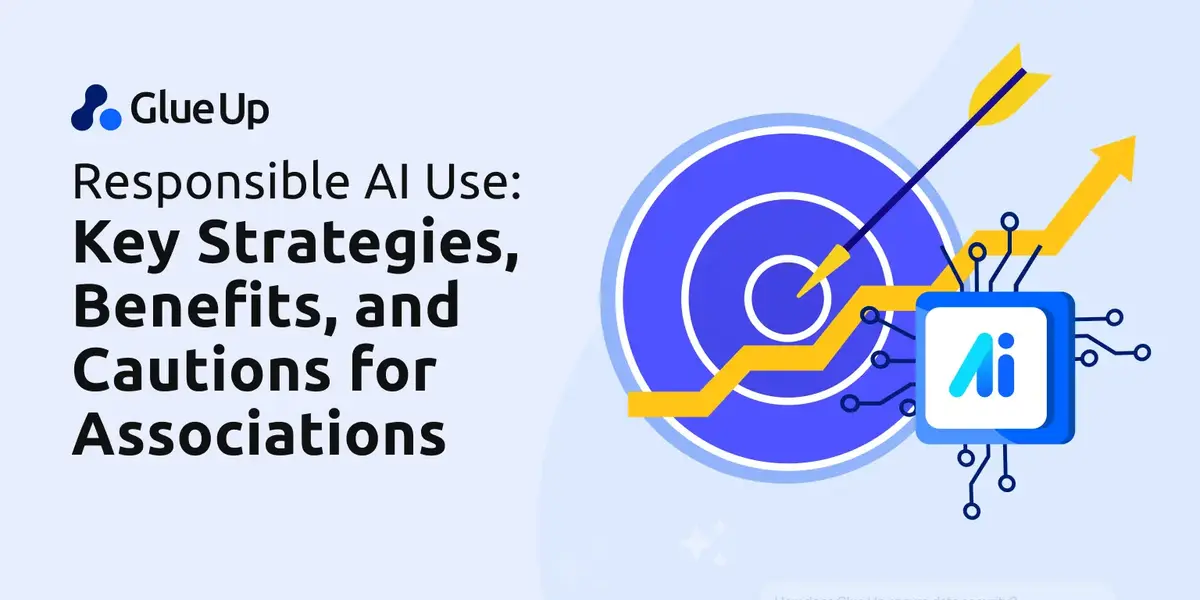
As an association leader, you've likely heard about the transformative potential of artificial intelligence (AI) across industries.
AI tools and technologies offer significant opportunities to enhance your operations, member engagement, and value proposition.
You are uniquely positioned to leverage AI in powerful ways - from personalizing member experiences to streamlining data analysis to automating tedious tasks.
However, along with the benefits, there are important cautions and considerations regarding how AI should be used responsibly and ethically. Let's explore some key strategies for you to harness the power of AI while mitigating risks.
Key Takeaways
- AI offers significant benefits for associations in areas like streamlining member communication and engagement, reducing risk through content moderation, automating repetitive tasks, delivering personalized experiences, and enhancing data analysis.
- Associations should understand core AI technologies like Generative Pre-trained Transformers (GPT), large language models, and purpose-built AI tools to make informed decisions about AI adoption.
- Responsible AI use requires navigating challenges related to privacy, security, accuracy, bias, unintended consequences, and the rapidly evolving technology landscape. Associations must implement clear policies, human oversight, transparency with members, and an iterative approach.
- Associations should identify specific use cases tied to organizational goals, start small, prioritize privacy and security when selecting AI tools, and commit to using AI ethically in a way that aligns with their values.
- The future of AI in associations is promising, but leaders must shape it carefully, balancing innovation with strong governance practices. AI should enhance the member experience, while human judgment and empathy remain central.
Benefits of AI for Your Association
Data from an AIC survey of more than 450 executive-level association executives revealed that less than one-fourth of association executives have AI solutions underway (ASAE). Another survey suggested that almost two-thirds (63%) of association meeting planners are using artificial intelligence (AI) to help them organize events (Associations Meeting International).
There are four major areas where AI can bring value to your association and the ways you connect with and engage your members:
Streamlining Communication Channels and Engagement
AI can help you streamline and optimize your member communication and engagement efforts.
Glue Up has joined The NVIDIA Inception Program and is the first AI-powered association management software that leverages the most advanced NVIDIA Enterprise AI to enhance your member interactions and experiences.
"Our AI-driven platform, powered by cutting-edge NVIDIA technology, allows you to communicate with members more effectively, understand their needs and preferences, and deliver targeted content and recommendations," explains Schmidt, Co-Founder and CEO of Glue Up "By automating repetitive tasks and providing valuable insights, Glue Up empowers you to focus on building meaningful relationships with your members and driving engagement."
Discover more about Glue Up’s innovative set of AI tools here.
Reducing Risk
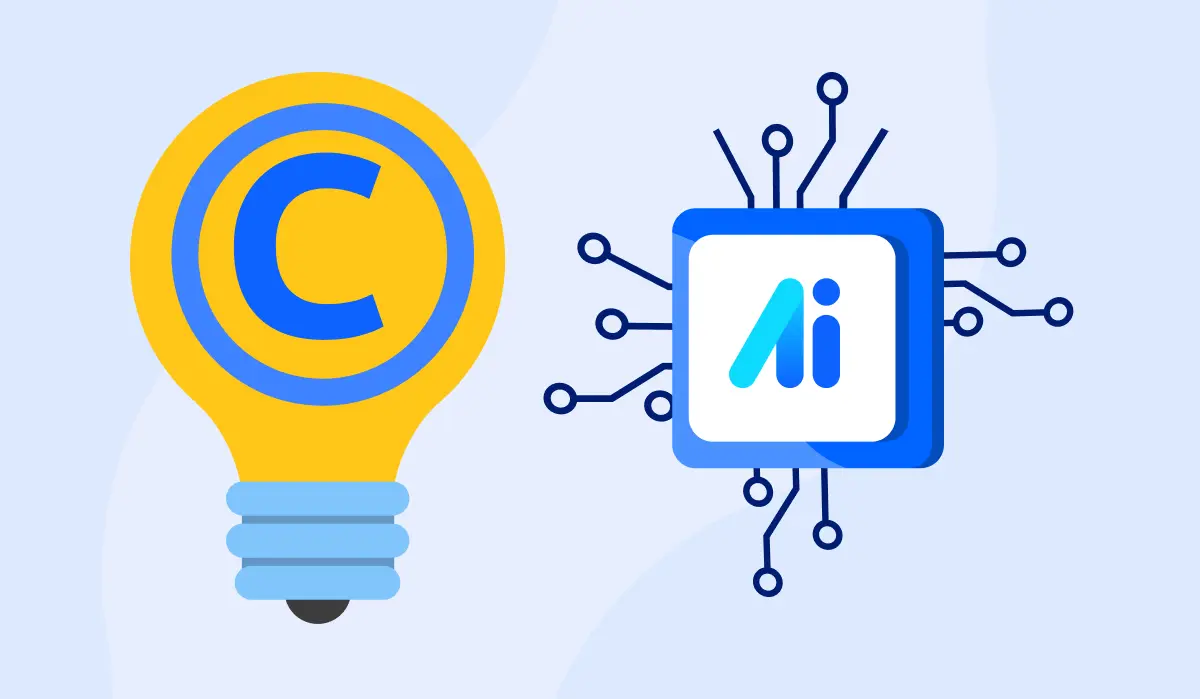
AI can assist you with important regulatory obligations, such as content moderation around online harms like hate speech and misinformation.
"AI can assist in moderating user content before it's posted, categorizing content as not harmful and thus visible, or identifying it as potentially harmful and removing it. When AI has low confidence in its predictions, it flags content for human review." - Appen Insights on AI and Machine Learning for Content Moderation (Appen AI Data)
Sophisticated AI moderation tools can integrate with your community platform to flag issues, automate stop-gaps, and ensure compliance.
Furthermore, it can also analyze member behavior and engagement to spot potential churn risks.
Lifting Burden
Many repetitive administrative tasks can be automated using AI, freeing up your staff for higher-value activities requiring human insight.
This includes managing event communications, onboarding/offboarding tasks, scheduling, note-taking, and basic content creation.
According to a recent study, AI can automate up to 70% of association staff's current workload (TechTarget).
In addition to automating tasks, AI can also assist with decision-making by providing data-driven insights and recommendations.
For example, AI can analyze your member data to identify trends, predict future needs, and suggest personalized member experiences. This enables your staff to make more informed decisions and deliver greater value to their members.
Deepening Relevance
AI enables you to deliver highly personalized member experiences at scale.
You can use it to tailor programming, content, and networking recommendations based on member data and interactions.
AI-powered matchmaking can also help you strategically connect members with shared interests, needed expertise, or volunteer opportunities.
As Eric Schmidt states, "Personalization is the new frontier for member engagement, and AI is the key to unlocking it at scale."
Enhancing Analysis

AI analytics can reveal valuable insights from the vast amounts of data your association collects.
It helps you identify engagement opportunities, forecast trends, optimize resource allocation, as well as provide evidence of your impact and value using AI tools. Many don't require deep technical knowledge for you to use.
Specific powerful use cases for your association include:
- Personalizing member communications like renewal notices and event recommendations based on their history and interests
- Automatically generating meeting summaries, policy drafts, product descriptions, and social media content
- Clustering data into themes for easier analysis (e.g. grouping conference sessions or open-ended survey responses)
- Visualizing data in charts and graphics to spot trends
- Translating content into multiple languages and reading levels
- Editing and proofreading to correct errors and remove jargon
Core AI Technologies to Understand
To make informed decisions about AI, it's helpful for you to understand some key underlying technologies:
Generative Pre-trained Transformers (GPT)
GPT refers to extremely large AI models trained on massive datasets to generate human-like content, from text to images to code.
They are the "brains" powering apps like ChatGPT. The models continue to grow exponentially in size and capability.
Large Language Models
The natural language AI models underlying GPT systems. The largest now has over 1 trillion parameters.
Purpose-Built AI Tools
Many AI tools are tailored for specific uses, like Otter.ai for meeting summaries or Whisper for speech recognition.
The ecosystem of specialized AI tools is vast and expanding rapidly. You can mix and match best-in-class solutions to supercharge their operations and level up member value.
The key is identifying needs and exploring the AI marketplace for well-aligned tools.
Strategies for Responsible AI Use
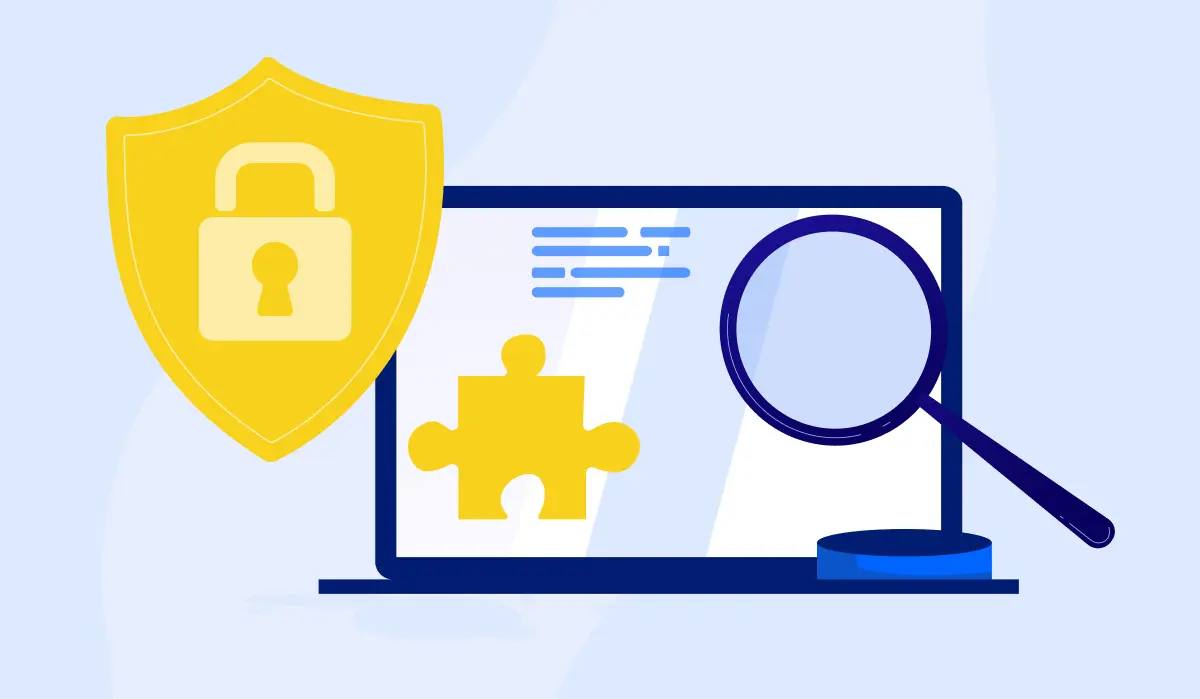
As much as AI offers exciting possibilities, it also comes with risks and challenges that you must navigate carefully.
“Current language models suffer from issues with fairness, computational resources, and privacy,” says MIT CSAIL postdoc Hongyin Luo
Here are some key issues that you should be aware of:
Privacy and Security
There are no guarantees that data entered into AI systems will remain private.
Your sensitive member data could be vulnerable to leaks or intellectual property infringement. Any tool you use should have privacy assurances that you can trust.
Accuracy and Bias
AI systems can produce inaccurate or biased results.
They may make up information, reinforce stereotypes, or give wrong answers. Your staff must always review, fact-check, and edit AI-generated content.
A recent MIT study found that current AI language models can generate false and biased information (MIT News).
Unintended Consequences
Relying too heavily on AI could result in losing important human elements of your member community. Efficiency isn't everything.
Rapidly Evolving Landscape
AI is a fast-moving field and applications can quickly become outdated. You should be judicious about investing heavily in any one tool.
To implement AI responsibly, you should:
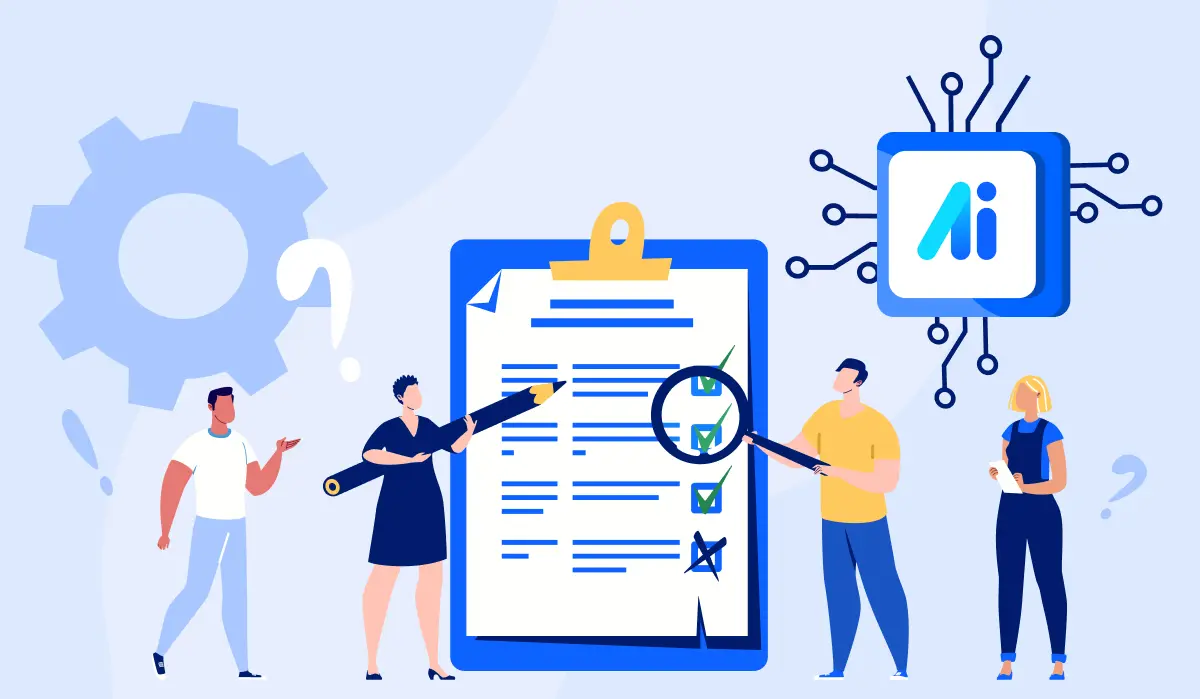
Create Clear Policies
Develop guidelines outlining prohibited and acceptable uses of AI, rules around member privacy and transparency, and safeguards to prevent misuse.
Involve stakeholders across your association.
Identify Use Cases Tied to Goals
Brainstorm how AI could help you achieve specific objectives, whether internal (e.g. streamlining finance processes) or external (e.g. enhancing member experience).
Let your organizational priorities and values lead technology decisions.
Implement Human Oversight
AI should assist and augment your staff's efforts, not replace them entirely.
Have systems for your team to monitor and fact-check outputs. Be able to quickly deactivate AI tools if issues arise.
Be Transparent with Members
Disclose to your members how their data may be used and if they are interacting with AI. Give them control over their information and the ability to opt-out.
"Transparency builds trust," says Schmidt. "Your members should always know when they're engaging with AI and have a choice in the matter."
Start Small and Iterate
Begin by piloting AI in lower-stakes areas and continuously gather feedback.
Regularly evaluate the effectiveness and adjust. AI is not an all-or-nothing proposition for your association.
Prioritize Privacy and Security
Choose tools that enable the removal of data from training models as needed. Avoid having your private or proprietary information become part of public AI systems. Vet vendors carefully.
Commit to Ethical, Human-Centered AI
Look beyond the hype to soberly assess real-world impacts. Partner with experts and consult resources from trusted voices raising important issues. Act with integrity and in alignment with your association's values.
The Future of AI For Associations
The future of AI in your association is bright – and it's up to you to shape it responsibly.
"AI is an incredibly powerful tool, but it will never substitute for the judgment, empathy, and vision you bring as an association leader," affirms Schmidt.
By staying informed about evolving tools and best practices, fostering a culture of innovation balanced with strong ethics and governance, and always putting your members first, you can harness AI to make a greater impact than ever before.
As you explore the potential of AI for your association, it's essential to consider how the right technology can support your goals and enhance your members' experiences.
Glue Up’s AI-powered Association Management Software can help streamline operations, personalize interactions, and uncover valuable insights that drive growth.
To learn more about how this first global AI-powered AMS is transforming the world of association management and what it could mean for your organization, consider requesting a demo here.
Seeing the technology in action can help you better understand its capabilities and make informed decisions about your association's digital future.

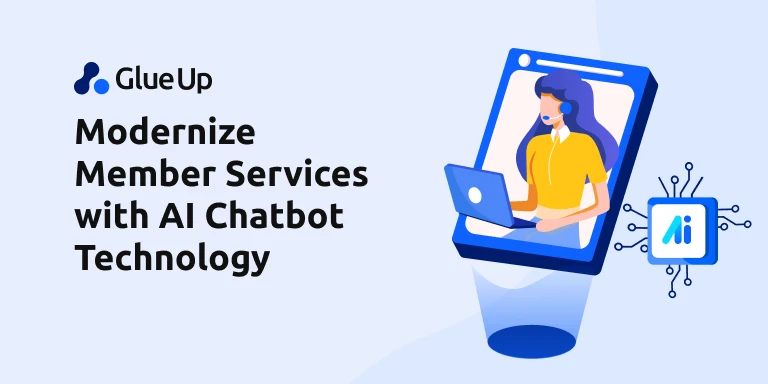
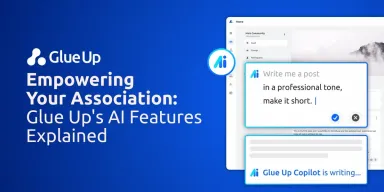
![A Guide To AI Email Automation for Associations [Tools and Benefits] A Guide To AI Email Automation for Associations [Tools and Benefits]](/sites/default/files/styles/all_blogs_block_img_384x192/public/2024-05/image_1_header_1536x768_%287%29.webp?itok=l6LX7jtL)